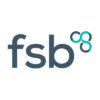Responding to news that CPI has fallen to 7.9%, while core inflation fell to 6.9% in the 12 months to June 2023, Martin McTague, National Chair of the Federation of Small Businesses (FSB), said:
“The fall in CPI buys small businesses a little bit of breathing space, and could be a signal that the cost of doing business crisis is finally starting to abate. The drop in transport costs is especially helpful, although services have seen less easing in cost increases than goods.
“Whether inflation has fallen by enough to delay another base rate rise in just over a fortnight’s time is even more uncertain, but small firms being hammered by the highest interest rate environment since 2008 will be keeping everything crossed that rates’ precipitous upward climb will be slowed sooner than predicted.
“Small firms are finding their prospects for growth increasingly hemmed in by the withering away of cost-effective finance deals, and many are feeling exhausted by the toll exacted by the cost of doing business crisis. Even though CPI has fallen, it’s still far higher than the Bank of England’s target rate, and low interest rate deals have more or less fled the market.
“More and more households with mortgages are tipping over into higher monthly repayments, while renters are also seeing their housing costs rise, cutting disposable income and spelling trouble for consumer-facing sectors like hospitality and retail. Whatever happens with the base rate over the rest of the year, this is a trend which is unlikely to recede any time soon, and it will continue to dampen consumer spending.
“Many small firms are long past the point where they can absorb rising costs. What they really need is to be paid the money they’re owed by customers promptly, without having to waste time and effort chasing overdue invoices. This is an issue which the Government could massively alleviate through cost-neutral and non-inflationary measures, such as making the boards of large corporates accountable for payment practices in their supply chains.
“The Prudential Regulation Authority’s plans to scrap the SME supporting factor in its Basel 3.1 proposals are a concern. Currently, the factor means that lenders don’t have to hold as much capital when lending to small firms; once it is removed, an already difficult finance situation for small businesses will become even more hostile.
“Without small business growth, the economy itself will continue to stagnate – small firms could really do with some sunshine as they do their best to keep going and look for opportunities to expand.”
Media contact
About FSB
As the UK’s largest business support group, FSB is the voice of the UK’s small businesses and the self-employed. Established over 40 years ago to help its members succeed in business, FSB is a non-profit making and non-party political organisation that’s led by its members, for its members. As the UK’s leading business campaigner, FSB is focused on delivering change which supports smaller businesses to grow and succeed.
FSB offers members a wide range of vital business services, including access to finance, business banking, legal advice and support along with a powerful voice in Government. Each year FSB also runs the UK’s Celebrating Small Business Awards. More information is available at www.fsb.org.uk. You can follow us on twitter @fsb_policy and on Instagram @fsb_uk.


